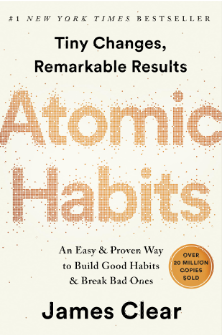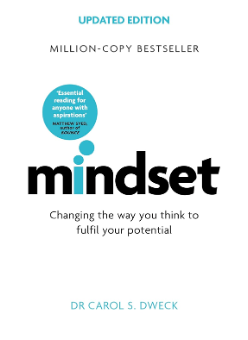5 Books That Changed My Thinking
If you’re building something real, these books belong on your shelf
Most of my childhood was spent playing football or Pokémon with friends.
Even in university, reading never felt exciting. After a full day of reading academic papers, the last thing I wanted was reading more text in the evening.
But everything changed when I started my first company, e-bot7 in 2016.
Something clicked.
I realized that a single book can give you access to a lifetime of experience.
Someone who’s already walked the path, made the mistakes, and taken the time to write it all down so you don’t have to.
That’s insanely powerful.
Especially in startups, where you’re constantly making difficult decisions, reading the stories of those who’ve succeeded before you can shift your mindset and boost your confidence.
I’ve built a list of 100+ books that truly shaped the way I think, work, and live.
Today, I’m sharing 5 of them and over time, I’ll keep dropping more from the list.
One book that genuinely changed the way I think is Atomic Habits by James Clear.
It helped me understand how small, consistent actions compound over time whether in life, health, or building a company.
One simple habit that’s had a huge impact on my sleep and mental clarity is this:
I never sleep with my phone in the same room.
How do I stick to it?
I leave my phone charger in the kitchen. By the time I go to bed, my phone is usually low on battery so it has to stay there overnight.
No temptation, no scrolling.
This tiny change has made a big difference. I sleep more deeply, fall asleep faster, and wake up without immediately diving into notifications.
Phones don’t belong in the bedroom.
Even if you’re not actively checking it, your mind stays unconsciously alert. Leaving it outside is like giving your brain permission to rest.
My next book recommendation is Ultralearning by Scott Young.
The core idea is simple but powerful:
You choose what you want to master like learning to play the piano and then pursue it through deep, focused, self-directed learning over a short, intense period.
I can highly recommend this book because I’ve tested it myself.
After reading it, I set a personal challenge:
Learn to play three piano songs within four weeks.
I had zero prior experience.
But by following the principles from the book: Structured practice, rapid feedback, and full focus, I managed to do it.
And the feeling was incredible.
When you combine this approach with the habit-building strategies from Atomic Habits, you realize that almost any skill is within reach if you’re willing to put in the effort and if you are consistent.
For founders, creators, or anyone trying to build something from scratch, this mindset is invaluable.
It teaches you how to teach yourself fast.
Another recommendation which suits perfectly to the above mentioned books is Tools of Titans by Tim Ferris.
It’s a great resource that writes about the habits, tools, and philosophies of world-class performers and leaders across industries.
You’ll find book, podcast, and documentary recommendations alongside deep dives into the daily routines, mental frameworks, and lifestyle choices of people like Jamie Foxx, Arnold Schwarzenegger, and many others.
What inspired me most was realizing that these people aren’t superhuman.
They’ve simply built intentional systems around learning, focus, and recovery and then stuck to them with discipline.
It made me believe that excellence is often just the result of better habits and more deliberate choices.
The One Thing by Gary Keller is another great addition for your book shelf.
The core idea is to ask yourself the following question: “What’s the ONE thing I can do, such that by doing it, everything else will be easier or unnecessary?”.
In my view people tend to do tasks which are easy but not really the most important ones. The most important ones are typically hard or time-consuming.
For me, this concept was a game-changer during my time building several start-ups.
Whenever I felt overwhelmed or stuck, I would pause and ask myself that one focusing question.
It helped me cut through the noise, prioritize what really mattered, and make progress on the things that actually moved the company forward.
It’s a mindset I still try to apply whether I’m writing, thinking about new projects, or simply trying to avoid the notion of “being busy”.
My last but not least fifth recommendation is Mindset by Carol S. Dweck.
This book had a lasting impact on how I think about learning, growth, and resilience.
People with a fixed mindset believe that talent is everything. If they’re not naturally good at something, they assume they’ll never be and often give up quickly.
People with a growth mindset, on the other hand, believe that you can get better at anything with effort, practice, and feedback. They see failure not as a reason to quit, but as a chance to learn and improve.
Especially as a founder, where you’re constantly facing challenges you’ve never encountered before, adopting a growth mindset can be the difference between giving up and pushing through.
It helped me reframe setbacks not as signs I wasn’t “good enough,” but as opportunities to learn, adapt, and get better.
I genuinely hope you get a chance to read these books (if you haven’t already).
These books had a meaningful impact on both my professional and personal life. I’d recommend them to anyone navigating growth, facing challenges, or simply looking to become a better version of themselves.
Happy reading! 📚
Creating work that’s clear, independent, and genuinely useful takes time.
If you’ve found value in this newsletter, consider becoming a paid subscriber.
Your support helps me go deeper into research, reach more people, and stay free from ads, clickbait, or hidden agendas.
PS: Supporting this work doesn’t have to come out of your pocket. If you read this as part of your professional development, you can request reimbursement for your subscription.










